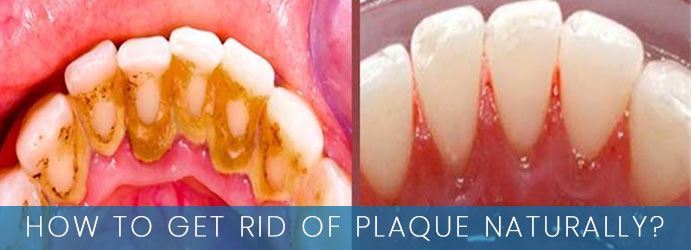Dealing with a toothache while traveling can be uncomfortable, but there are several steps you can take to manage the pain and minimize discomfort until you can seek proper dental care:
- Rinse with warm salt water:
- Mix a teaspoon of salt in a glass of warm water.
- Gently swish the solution in your mouth for 30 seconds, then spit it out.
- This can help reduce inflammation and temporarily relieve pain.
- Floss gently:
- Sometimes a toothache can be caused by food particles stuck between your teeth.
- Gently floss around the affected tooth to remove any debris that may be causing the pain.
- Over-the-counter pain relief:
- Take over-the-counter pain relievers like ibuprofen or acetaminophen as directed on the label.
- These can help reduce pain and inflammation. Be sure to follow the recommended dosage.
- Topical anesthetics:
- You can apply an over-the-counter oral gel or ointment with benzocaine to numb the affected area.
- Follow the instructions on the product packaging.
- Avoid certain foods and drinks:
- Stay away from hot, cold, sweet, or acidic foods and beverages that can worsen the pain.
- Opt for soft, bland foods that are easier on your teeth.
- Maintain good oral hygiene:
- Continue to brush your teeth gently and carefully to keep the affected area clean.
- Use a toothbrush with soft bristles and avoid putting excessive pressure on the sore tooth.
- Avoid pressure:
- Try to avoid chewing on the side of your mouth with the painful tooth.
- Cold compress:
- Applying a cold compress to the outside of your cheek for 15-20 minutes may help reduce swelling and provide temporary relief.
- Emergency dental kit:
- Consider carrying a basic dental emergency kit with dental floss, pain relievers, and oral gel while traveling.
- Seek professional dental care:
- As soon as possible, schedule an appointment with a dentist at your travel destination.
- Explain the situation, and they can provide a proper diagnosis and treatment.
Remember that these measures are intended to provide temporary relief until you can see a dentist. A toothache may be a sign of an underlying dental issue that requires professional attention, so it’s essential to seek dental care as soon as you can to address the root cause of the problem.
Why does my tooth hurt when I travel?
Tooth pain while traveling can occur for various reasons, and it may not necessarily be directly related to travel itself. Instead, the discomfort may coincide with your travel plans due to a pre-existing dental issue or other factors. Here are some potential reasons why your tooth might hurt when you travel:
- Pre-existing dental problems: If you already have an underlying dental issue such as a cavity, cracked tooth, gum infection, or a dental filling that needs attention, the discomfort may become more noticeable during your travels due to changes in air pressure, temperature, or altitude.
- Changes in diet: When traveling, people often consume different foods and drinks than they do at home. If you consume a diet high in sugary or acidic foods and beverages, it can exacerbate tooth sensitivity or pain.
- Dehydration: Traveling can sometimes lead to dehydration, which can cause dry mouth. A dry mouth can increase the risk of dental problems and make tooth pain more noticeable.
- Stress: Traveling can be stressful, and stress can lead to teeth grinding (bruxism), which can result in tooth sensitivity and pain.
- Altitude changes: If you’re traveling to a location at a significantly higher or lower altitude than your home, changes in atmospheric pressure can sometimes affect tooth pain or sensitivity, especially if there are pre-existing dental issues.
- Airplane travel: Changes in cabin pressure during airplane flights can sometimes exacerbate tooth pain if you have dental issues or sinus problems. Chewing gum or swallowing during takeoff and landing can help equalize pressure in your ears, which may indirectly alleviate tooth pain.
- Delayed dental care: Some travelers postpone necessary dental treatments before or during their trips. Delaying dental care can lead to an escalation of existing dental problems and result in toothaches while traveling.
If you experience tooth pain while traveling, it’s essential to take it seriously and not ignore it. Schedule an appointment with a dentist at your travel destination as soon as possible to address the issue. In the meantime, you can follow the tips mentioned in the previous response to manage the pain temporarily. Remember that it’s better to address dental problems promptly to prevent them from getting worse and potentially ruining your travel experience.
How do I stop my teeth from hurting in the car?
Tooth pain or discomfort while in a car can be bothersome, but there are several steps you can take to alleviate or prevent tooth pain during your car rides:
- Maintain good oral hygiene: Regularly brushing and flossing your teeth can help prevent toothaches by minimizing the risk of dental issues like cavities and gum disease. Make sure to brush your teeth gently with a soft-bristle toothbrush.
- Avoid temperature extremes: Extreme hot or cold temperatures can trigger tooth sensitivity and pain. Avoid consuming very hot or very cold foods and beverages before or during your car ride.
- Stay hydrated: Dehydration can lead to dry mouth, which can exacerbate tooth pain and sensitivity. Drink water before and during your car journey to stay properly hydrated.
- Chew sugar-free gum: Chewing sugar-free gum during your car ride can help stimulate saliva production, which can alleviate dry mouth and protect your teeth from acid erosion.
- Use desensitizing toothpaste: Consider using a toothpaste specifically designed for sensitive teeth. These toothpaste products can help reduce tooth sensitivity over time.
- Avoid acidic foods and drinks: Acidic foods and beverages can weaken tooth enamel and increase sensitivity. Avoid consuming citrus fruits, soda, and other highly acidic items before or during your car ride.
- Use a mouthguard: If you grind your teeth (bruxism), especially during stressful situations like long car rides, consider using a dental mouthguard. This can help protect your teeth from damage and reduce pain.
- Take over-the-counter pain relievers: If you’re experiencing acute tooth pain during your car ride, you can take over-the-counter pain relievers like ibuprofen or acetaminophen, following the recommended dosage on the label. Be sure to take them with water and as directed by the manufacturer.
- Distract yourself: Engaging in activities or listening to music, podcasts, or audiobooks can help take your mind off the tooth pain and make the car ride more comfortable.
- Consult your dentist: If tooth pain persists or becomes severe during car rides, consult your dentist to identify the underlying cause and receive appropriate treatment.
It’s essential to address the root cause of your tooth pain, whether it’s due to dental issues like cavities or sensitivity, and seek professional dental care if needed. Additionally, maintaining good oral hygiene practices and taking preventive measures can help reduce the likelihood of tooth pain during car rides.
How far can tooth pain travel?
Tooth pain itself doesn’t “travel” in the sense that it physically moves from one location to another in your body. However, tooth pain can sometimes be referred to other areas, which means that you may perceive the pain in a different location than its actual source. This is known as referred pain, and it occurs when the nerves that transmit pain signals from one part of the body are interconnected with nerves from another area.
In the case of dental referred pain, the pain from a specific tooth or dental issue can be felt in areas such as the jaw, ear, temple, or even the head and neck. This can make it challenging to pinpoint the exact source of the pain.
Common examples of referred tooth pain include:
- Sinus issues: Dental problems in the upper back teeth, such as an infection or inflammation, can sometimes be felt as pain in the sinus area.
- Ear pain: Toothaches in the lower molars may be perceived as ear pain because the nerves in these areas are interconnected.
- Jaw pain: Tooth pain, particularly in the lower jaw, can be mistaken for general jaw pain or temporomandibular joint (TMJ) disorder.
- Headaches: Severe tooth pain, especially if it’s associated with conditions like bruxism (teeth grinding) or temporomandibular joint disorder, can lead to headaches or migraines.
- Throat pain: Pain from an infected tooth, especially in the lower jaw, can sometimes be felt in the throat.
While referred tooth pain is possible, it’s important to understand that the underlying dental issue remains in the same location. Therefore, even if you perceive the pain in a different area, it’s crucial to consult a dentist to identify and address the root cause of the problem.
If you experience any persistent or severe tooth pain, it’s advisable to seek professional dental care to diagnose and treat the issue properly. Ignoring dental pain can lead to more significant problems and complications down the line.
Is toothache worse on a plane?
Toothache pain can potentially feel worse on a plane for several reasons:
- Change in Cabin Pressure: During a flight, the cabin pressure changes as the aircraft ascends and descends. These changes in pressure can affect the air pockets within your teeth, causing discomfort or exacerbating existing dental issues. If you have a dental problem like a cavity, gum infection, or a sinus issue related to your tooth, you may experience increased pain or sensitivity during these pressure changes.
- Altitude Changes: Flying often involves traveling to different altitudes, and changes in altitude can impact tooth pain. The decrease in air pressure at higher altitudes can lead to a sensation of fullness or discomfort in the ears and teeth. If you have a dental issue or sinus congestion, it can become more noticeable during ascent or descent.
- Dry Air: The air inside an airplane cabin is typically dry, which can contribute to dry mouth. A dry mouth can increase the perception of tooth pain and sensitivity, as saliva plays a crucial role in protecting your teeth and soothing oral tissues.
- Inability to Seek Immediate Care: If you experience an acute toothache while on a plane, you may not have immediate access to dental care. This can make the pain feel more distressing because you may not be able to address the underlying issue or obtain pain relief until you reach your destination.
To help alleviate tooth pain on a plane, you can try the following:
- Chew sugar-free gum or swallow frequently during ascent and descent to help equalize pressure in your ears and potentially reduce tooth pain associated with pressure changes.
- Stay hydrated by drinking water before and during the flight to combat dry mouth.
- Take over-the-counter pain relievers (if safe and appropriate based on your medical history and any medications you’re taking) before your flight, as recommended by your healthcare provider.
However, it’s essential to remember that these measures provide temporary relief and may not address the underlying dental problem. If you have a persistent toothache or dental issue, it’s advisable to seek professional dental care as soon as possible, especially upon reaching your destination, to diagnose and treat the issue properly. Ignoring dental pain can lead to more severe problems and discomfort in the long run.

Can flying affect a root canal?
Flying itself typically does not directly affect a root canal procedure or the treated tooth. However, there are a few considerations related to flying after a root canal that you should be aware of:
- Recent Root Canal: If you’ve recently had a root canal, it’s possible to experience some discomfort or residual pain in the days following the procedure. Flying can sometimes exacerbate this discomfort due to changes in cabin pressure, as mentioned in the previous responses. It’s advisable to discuss your travel plans with your dentist before the flight so they can provide guidance on managing any potential discomfort.
- Swelling or Infection: If you had a root canal due to an infection or abscess, it’s important to ensure that the infection is fully resolved before flying. Air travel can sometimes affect pressure changes, and if there is an active infection or swelling in the treated area, it could lead to increased discomfort during the flight. It’s best to consult with your dentist or endodontist to confirm that it is safe to fly after a root canal.
- Follow-Up Appointments: After a root canal, you may have follow-up appointments with your dentist or endodontist to monitor the healing process and potentially complete the restoration of the tooth (such as placing a crown). Make sure your travel plans do not interfere with these essential follow-up appointments.
To minimize potential issues related to flying after a root canal, consider the following:
- Consult with your dentist or endodontist before making any travel plans to discuss your specific situation and get their recommendations.
- If you experience any unusual or severe discomfort or pain before or during your flight, inform the flight attendants, and consider seeking medical attention upon landing.
- Maintain good oral hygiene practices, including gentle brushing and avoiding chewing on the treated tooth until it is fully restored.
Remember that individual circumstances may vary, and it’s crucial to follow the guidance provided by your dental healthcare provider to ensure a smooth recovery and safe travel experience after a root canal procedure.
Does moving around make toothache worse?
Moving around, such as walking, running, or engaging in physical activities, typically does not directly make a toothache worse. Toothache pain is primarily associated with dental issues like cavities, infections, gum disease, or dental trauma. The pain you experience is related to the underlying dental problem, not physical movement.
However, there are a few indirect factors related to movement and physical activity that may affect toothache pain:
- Blood Flow: Increased physical activity can lead to increased blood flow throughout your body, including to your head and face. In some cases, this increased blood flow could potentially intensify toothache pain if the tooth or surrounding tissues are inflamed or infected.
- Positional Changes: The way you position your head and mouth during physical activities can sometimes affect tooth pain. For example, if you’re bending over or performing exercises that put pressure on your head or jaw, you might notice changes in your toothache pain due to shifts in blood flow and tissue pressure.
- Temperature Sensitivity: Physical activities in extreme temperatures, such as very cold or very hot environments, can exacerbate tooth sensitivity and make existing tooth pain more noticeable.
It’s important to note that if you experience a sudden, severe increase in toothache pain during physical activity or at any other time, it could be a sign of an acute dental issue that requires immediate attention. You should consult a dentist to assess the cause of the pain and determine the appropriate treatment.
In general, while physical movement and activity may not directly worsen toothache pain, it’s essential to address the underlying dental problem causing the pain to find relief and prevent further complications. Maintaining good oral hygiene practices and seeking timely dental care are key to managing and preventing toothaches.
What stops tooth pain immediately?
Tooth pain can be extremely uncomfortable, and while there are some measures you can take to provide immediate relief, it’s important to keep in mind that these are temporary solutions. They won’t address the underlying dental issue causing the pain, so it’s crucial to seek professional dental care as soon as possible. Here are some steps to help stop tooth pain immediately:
- Rinse with warm saltwater: Mix a teaspoon of salt in a glass of warm water. Swish the solution in your mouth for about 30 seconds before spitting it out. This can help reduce inflammation and temporarily alleviate pain.
- Over-the-counter pain relievers: Take an over-the-counter pain reliever like ibuprofen or acetaminophen, following the recommended dosage on the label. These medications can help reduce pain and inflammation. Be sure to take them with water and as directed.
- Topical oral gel: Apply an over-the-counter oral gel or ointment containing benzocaine directly to the affected tooth and surrounding area. This can numb the area and provide temporary relief. Follow the instructions on the product packaging.
- Cold compress: Apply a cold compress or ice pack to the outside of your cheek for 15-20 minutes. This can help reduce swelling and numb the area, providing some immediate relief.
- Elevate your head: Propping your head up with pillows while resting or sleeping can help alleviate pressure on the affected tooth, reducing pain.
- Avoid triggering foods and drinks: Stay away from hot, cold, sweet, or acidic foods and beverages that can worsen the pain. Opt for soft, bland foods that are easier on your teeth.
- Gentle flossing: If you suspect that something is stuck between your teeth, gently floss around the affected tooth to remove any debris.
- Avoid pressure: Try not to chew on the side of your mouth with the painful tooth.
Remember that these measures are intended for short-term relief only. Tooth pain is often a sign of an underlying dental issue like a cavity, infection, or gum problem. It’s essential to schedule an appointment with a dentist as soon as possible to diagnose and address the root cause of the pain. Ignoring dental pain can lead to more significant problems and complications, so seeking professional care is crucial for long-term relief.






